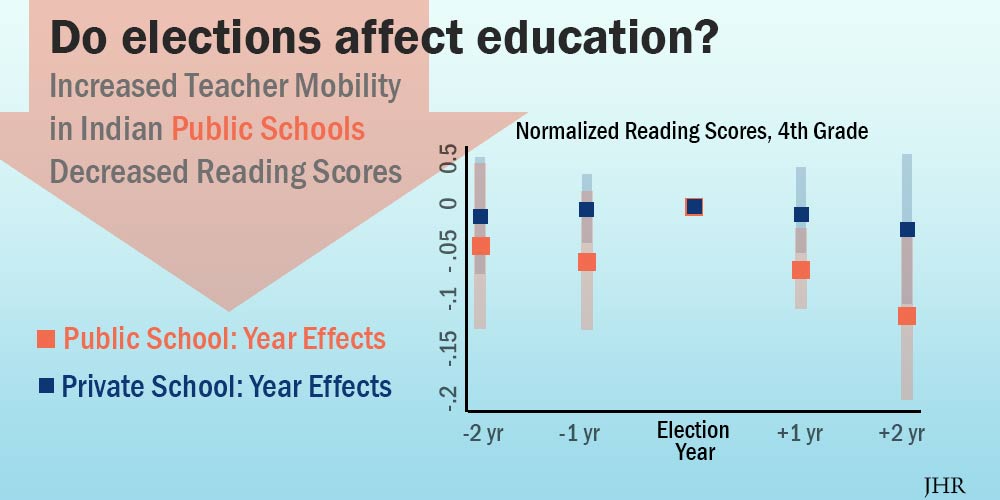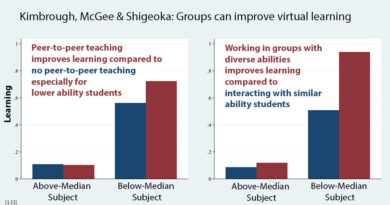Political Mismanagement of Indian Primary Schools Yields Worse Test Scores
Teachers and their working patterns are known to be important determinants of learning outcomes of pupils, as well as key to understanding the large gaps in skills across different school systems. Sonja Fagernäs and Panu Pelkonen examined how the management of teachers in Indian primary schools, when intermingled with political processes, can disrupt teachers’ work and eventually harm learning.
In India, the management of primary school teachers is the responsibility of Indian states, so Fagernäs and Pelkonen looked at the effects of State Assembly elections on teachers. They found significant increases in teacher transfers (roughly by 50%) after the Assembly elections. The magnitude of these transfers increased with the degree of political turnover at the local level. The findings support the view that increased teacher mobility is not just a mechanical result of post-election reorganization, but also a product of political interference and favoritism.
The increases in post-election mobility and restructuring of teachers disturb pupil performance. Pupils affected by the elections attain lower test scores in reading and mathematics, with differences equivalent to up to one-third to one-half of skills accumulated in a typical school year.
Importantly, the researchers found that the test scores of pupils who go to private schools are unaffected by the election cycle (see figure). This suggests that school management in the public sector is intertwined with politics in a manner that harms service delivery and learning.
So what’s the takeaway message? According to Fagernäs and Pelkonen, “This study highlights the fact that the performance of public services such as primary schooling in developing countries is not just a matter of resources and staffing, but also of the quality of management. Subjecting the management of school systems to short-term political interference can have a substantial detrimental effect on pupils.”
Read the full study in the Journal of Human Resources: “Teachers, Electoral Cycles, and Learning in India,” by Sonja Fagernäs and Panu Pelkonen
***
Sonja Fagernäs and Panu Pelkonen (@ppelk) are at the University of Sussex, Department of Economics.
The authors acknowledge financial support from the British Academy.



